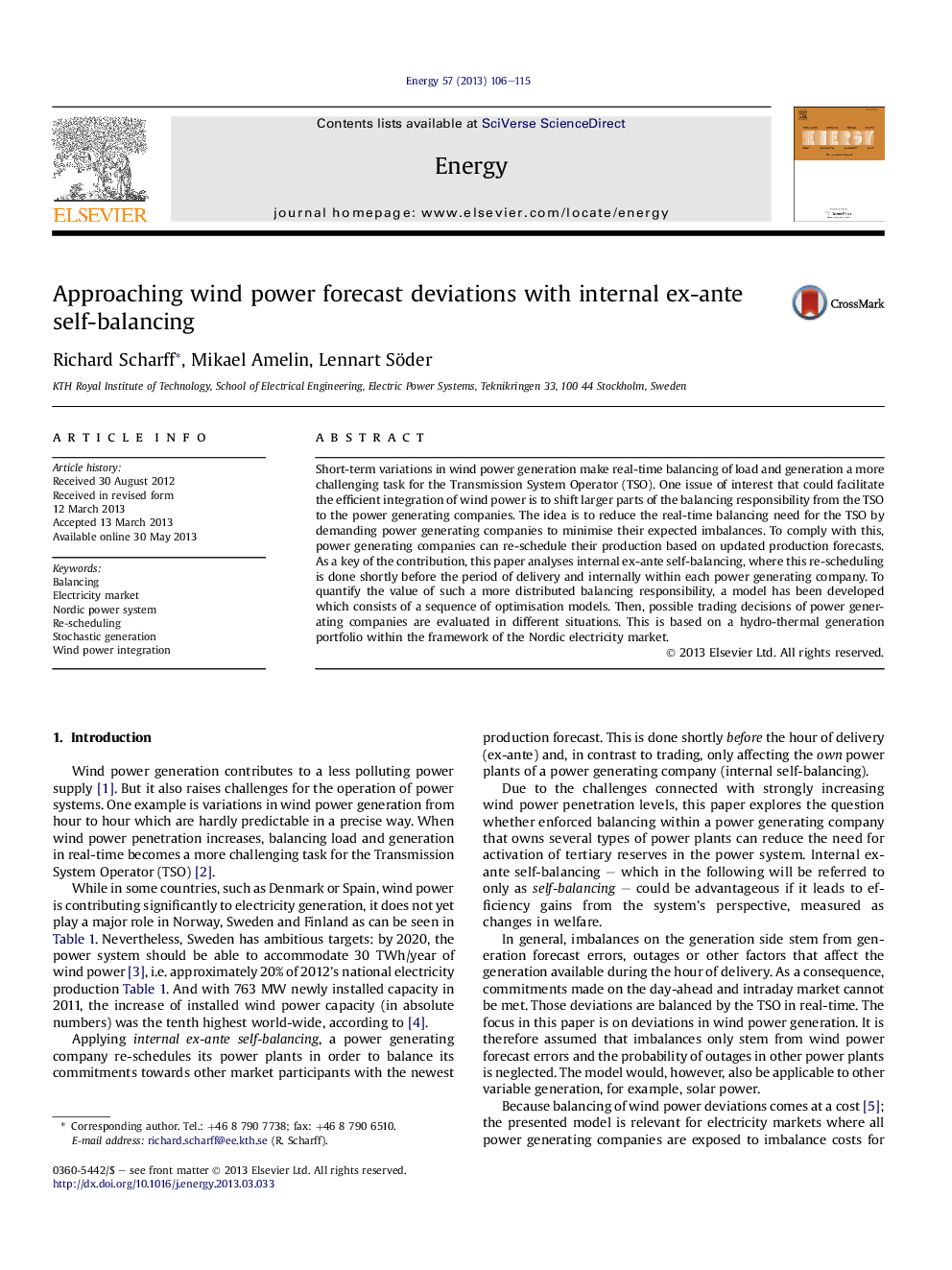| Article ID | Journal | Published Year | Pages | File Type |
|---|---|---|---|---|
| 1733054 | Energy | 2013 | 10 Pages |
•Analyses effects of stricter balancing responsibility for power generating companies.•Value of ex-ante self-balancing in the light of higher wind power penetration.•Thorough explanation of the model, its limitations and the test-system.•Numerical examples based on the Nordic electricity market.
Short-term variations in wind power generation make real-time balancing of load and generation a more challenging task for the Transmission System Operator (TSO). One issue of interest that could facilitate the efficient integration of wind power is to shift larger parts of the balancing responsibility from the TSO to the power generating companies. The idea is to reduce the real-time balancing need for the TSO by demanding power generating companies to minimise their expected imbalances. To comply with this, power generating companies can re-schedule their production based on updated production forecasts. As a key of the contribution, this paper analyses internal ex-ante self-balancing, where this re-scheduling is done shortly before the period of delivery and internally within each power generating company. To quantify the value of such a more distributed balancing responsibility, a model has been developed which consists of a sequence of optimisation models. Then, possible trading decisions of power generating companies are evaluated in different situations. This is based on a hydro-thermal generation portfolio within the framework of the Nordic electricity market.
